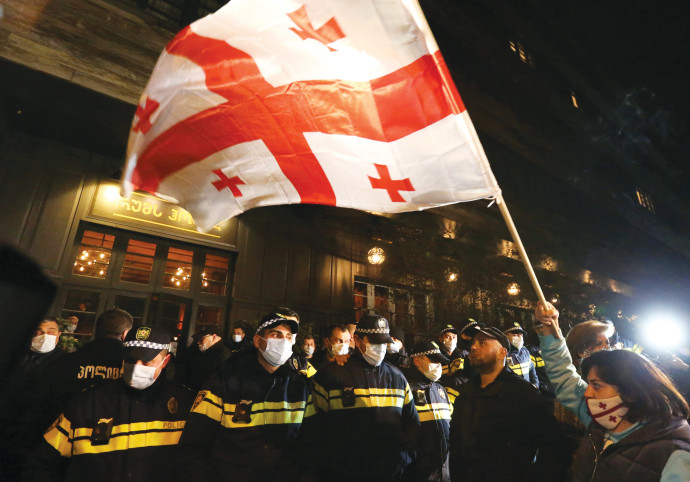A group which initiated a referendum on the unification of the Republic of South Ossetia with Russia has sent a petition to the Central Election Commission of the republic, said press secretary of the head of South Ossetia Dina Gassiyeva on Wednesday morning.
According to Gassiyeva, the group included "four presidents of the republic: the current president Anatoly Bibilov, as well as ex-presidents Ludwig Chibirov, Eduard Kokoity and Leonid Tibilov."
In total there are 26 people in the group - politicians and public figures. The official representatives of the initiative group are the chairman of the parliament Alan Tadtaev, the first deputy chairman of the parliament Pyotr Gassiev and the assistant to the president Atsamaz Kasaev.
The request for a referendum was sent to the CEC in accordance with the relevant provision of the constitutional law on a referendum in South Ossetia. Moscow has not commented on the announcement.
Georgia said on March 31 that plans by the Russian-backed breakaway region of South Ossetia to hold a referendum on joining Russia were unacceptable, while the Kremlin stressed no action had been taken to make that happen.

Moscow recognized the breakaway regions of South Ossetia and Abkhazia as independent after fighting a war with Georgia in 2008. It stationed thousands of troops in both regions and has provided them with extensive financial support.
Georgian Foreign Minister David Zalkaliani was quoted by TASS news agency as saying: "Of course talk of holding any kind of referendum (in South Ossetia) is unacceptable... when this territory in Georgia is occupied."
A lawmaker from the Georgian Dream ruling party, Beka Davituliani, said South Ossetia's plans amounted to a provocation, the Interfax news agency reported.
Kremlin spokesman Dmitry Peskov told reporters he could not voice an opinion on South Ossetia's plans.
"No legal or any other action has been taken in this respect," he said. "But at the same time, we treat the expression of the opinion of the people of South Ossetia with respect."
The other breakaway region of Georgia, Abkhazia on the Black Sea coast, said it supported South Ossetia's aspirations but did not share its goal to join Russia.
Moscow has used diplomatic recognition as an instrument to maintain an armed presence in breakaway regions of the former Soviet Union that it sees as part of its sphere of influence.
